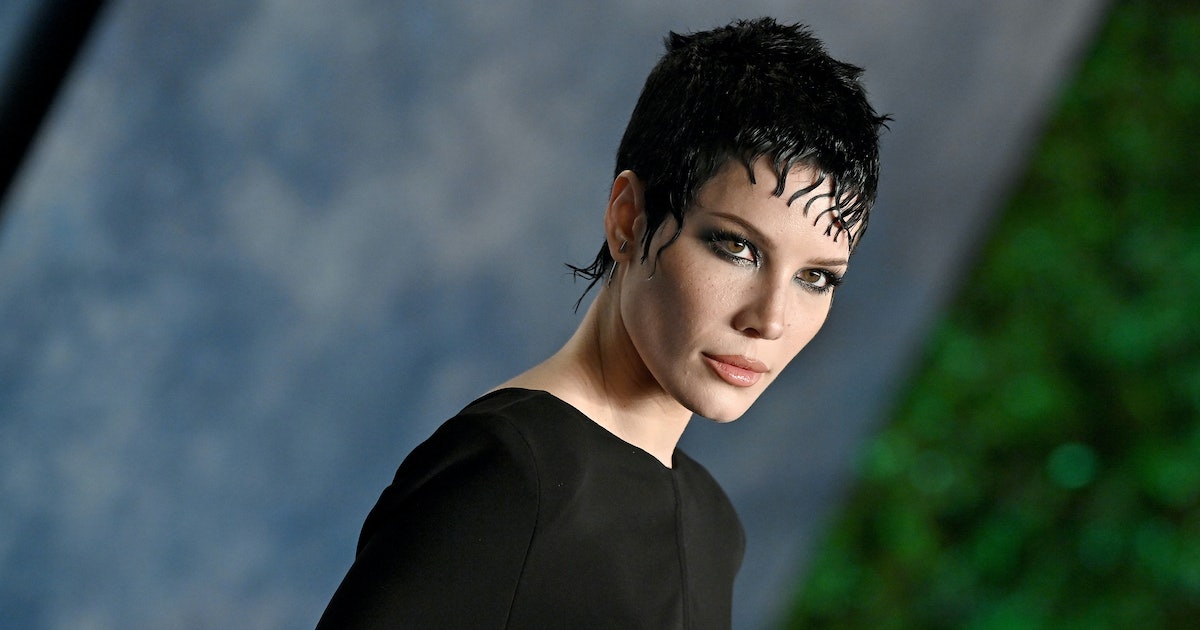[ad_1]
You’ve probably seen it mentioned in a Facebook group for moms, or maybe your own mom suggested using breast milk for skin ailments like diaper rash and cradle cap. And, sure, you may have shrugged it off as something only “crunchy” mamas do. Maybe you assumed it was one of those urban legends of early motherhood. But Halsey — musician, mother to baby Ender, and About-Face makeup brand founder — has a lot of people wondering, Can you use breast milk on your skin?
If you ask Halsey, the answer is yes. As a matter of fact, in a recent interview with Nylon, Halsey talked about their skincare routine and said using breast milk was a game changer for better skin. “I started breastfeeding, and I figured out that breast milk is the best skincare ingredient ever because it’s so full of antioxidants and good fats and stuff that speed up the healing process,” they told Nylon.
It might sound crunchy and purely anecdotal, but there’s science to back up her claims. Medela, one of the world’s leading breastfeeding supply distributors, says breast milk is not only safe to use as skincare but also helpful and capable of healing power. “Breast milk is comprised of many different substances, like antibodies, omega-3 fatty acids, and stem cells, which can also be incredibly beneficial when used in different forms (think lotions, facials, soap, and more) other than just a food source,” says a Medela article on breastmilk uses.
So, can you use old breast milk on skin?
A study from the National Library of Medicine backs up the claims that “milk therapy” can help skin problems. They list positive findings when using breast milk on skin conditions like eczema and diaper rash. They also showed positive results when used to treat nipple trauma (from breastfeeding), eye problems (like conjunctivitis and dry eyes), and even umbilical cord care. Those same antibodies and stem cells found in breast milk can work wonders on several issues your babe might have. Though, it’s always recommended that you consult with your pediatrician first.
What are the benefits of breast milk for adults? Can you use it on your face?
If you’ve ever come across a question in a mom group about what to do with “old breast milk” left over after weaning or that’s been in storage a little too long, you’ve probably seen parents suggest using it to treat your little one’s ailments. However, that same study for the NLM showed equally beneficial results for you, Mama.
Why? It’s those same omega-3s, stem cells, and lauric acid. (If “lauric acid” brings memories of that “hy-a-lur-on-ic acid” commercial, it should.) In an article from 2022, Parents even described breastmilk as the “new Botox.” The nutrients in breastmilk can do everything from clearing up acne to bringing back elasticity to your skin. (*stares at not-to-elastic-boobs in disapproving mom*)
What else can you use breast milk for?
If you’re still in the early stages of breastfeeding and worrying about making enough breast milk for your baby, this all seems like lunacy to you. Rest assured: There may come a day when you will have extra breast milk, at which point you might wonder what you can do with it. When you need an exhaustive list of breast milk uses, look no further. Breast milk can help:
- Diaper rash
- Cradle cap
- Acne (babies and parents)
- Eczema
- Stuffy noses
- Pink eye
- Umbilical cord issues
- Chapped/Otherwise traumatized nipples
- Dry skin
- Sagging eye skin
- Blocked tear ducts
- Ear infections
- Teething
How do you use breast milk on your (or your baby’s) skin?
Many parents swear by milk baths for things like rashes or other issues that cover large areas. For smaller issues, try using a dropper or a clean, sanitized swab soaked in the milk. For your own skin and nipple probs, consider using the milk when it’s cold or frozen for extra relief.
Editor’s note: As always, talk to *your* doctor before trying anything that could affect your wellness or the wellness of your child. And know that we understand not all moms want to or can breastfeed — there are other valid, healthy ways to nourish a baby.
[ad_2]
Source link

